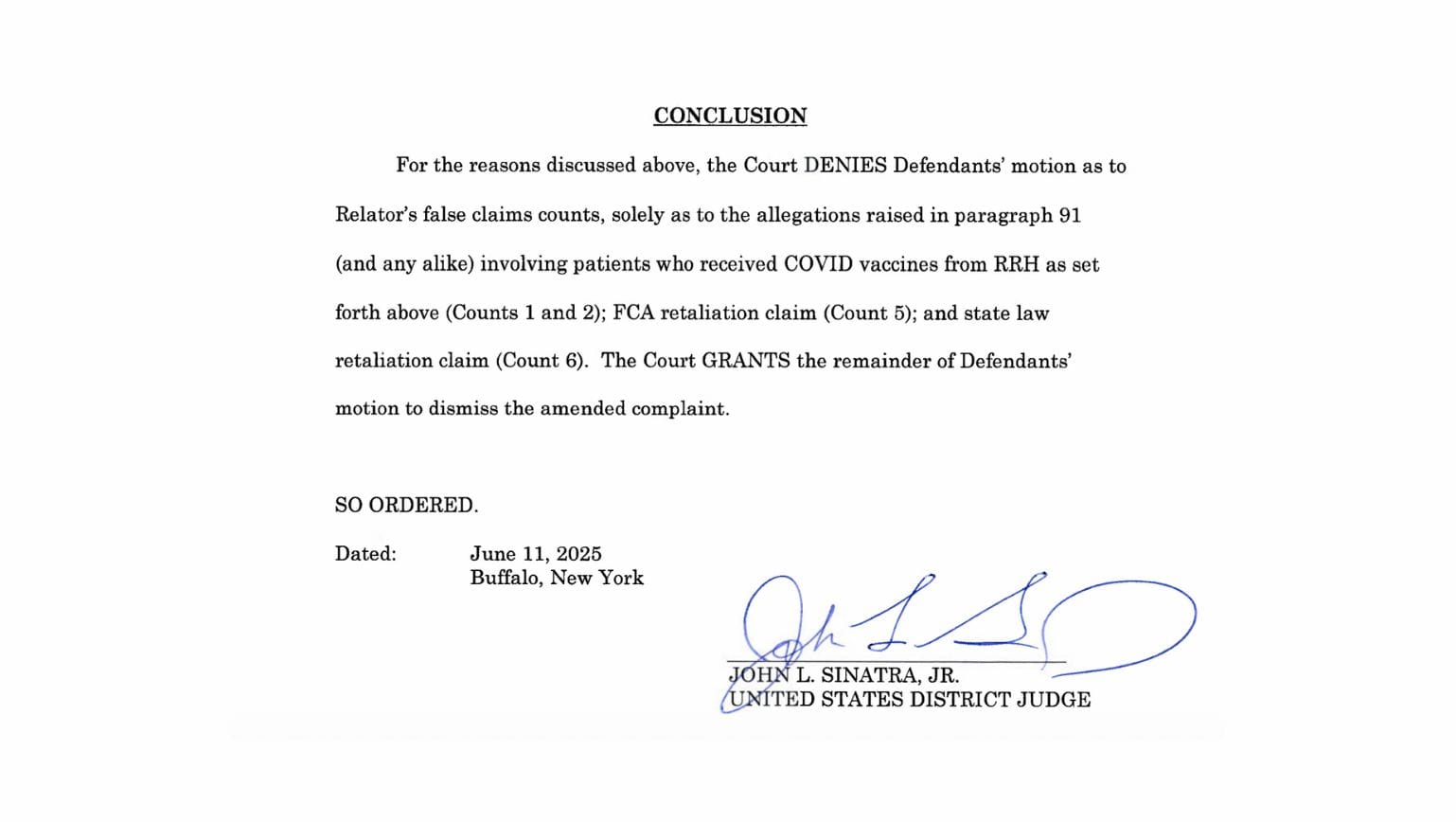U.S. Federal Court greenlights COVID-19 vaccine injury case
Ruling sets important precedent on hospital VAERS reporting requirement and accountability for COVID-era harms

Just over a month ago, the United States District Court in Washington, D.C. gave the greenlight for a significant COVID-19 vaccine lawsuit to move forward.
Represented by Warner Mendenhall, the False Claims Act lawsuit brought by Deb Conrad against Rochester Regional Health and United Memorial Medical Center will now move into discovery.
According to her website, Deborah Conrad worked as a physician assistant for 21 years. In October 2021, she was fired from Rochester Regional Health for allegedly spreading "vaccine misinformation" and "over-reporting" adverse events associated with COVID-19 vaccines to VAERS.
She then retained attorney Warner Mendenhall, and filed a lawsuit against her former employer on May 17, 2023, seeking damages, including back pay and civil penalties in violation of the False Claims Act of 1863.

On June 11, 2025, District Court Judge John Sinatra denied the defendants' motion to dismiss the case. In rendering its decision, the court found that Rochester Regional Health "had a material obligation to report serious adverse events to VAERS" and their "failure to report while continuing to seek federal reimbursement was potential fraud against the government."
The court also found that the plaintiff's "detailed allegations were enough to meet the strict legal standards for fraud claims, even without access to internal billing records;" and "she was probably fired for trying to expose the hospital's failure to report adverse events."
For these reasons, Conrad’s retaliation claim against the hospital was allowed to go forward to discovery.

“This ruling is significant beyond just Deborah's case,” Mendenhall explained in a recent article in his Substack series, Covid Lawcast. “It establishes that 1) healthcare providers cannot ignore federal safety reporting requirements while continuing to collect taxpayer money; 2) the False Claims Act can be used to hold institutions accountable for COVID-related misconduct; and 3) whistleblowers who expose these practices have legal protection.”
Click here to learn more about this case on the White Rose Wiki.